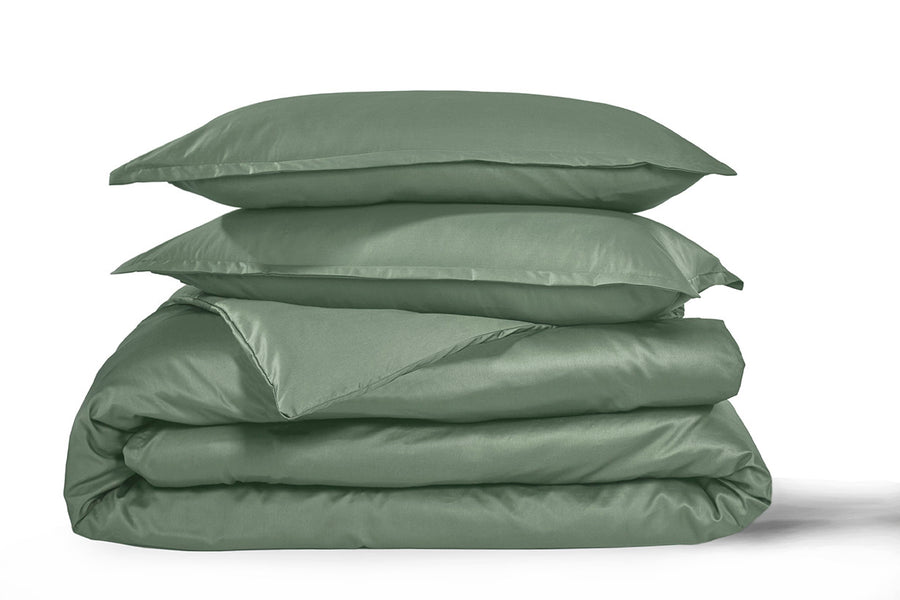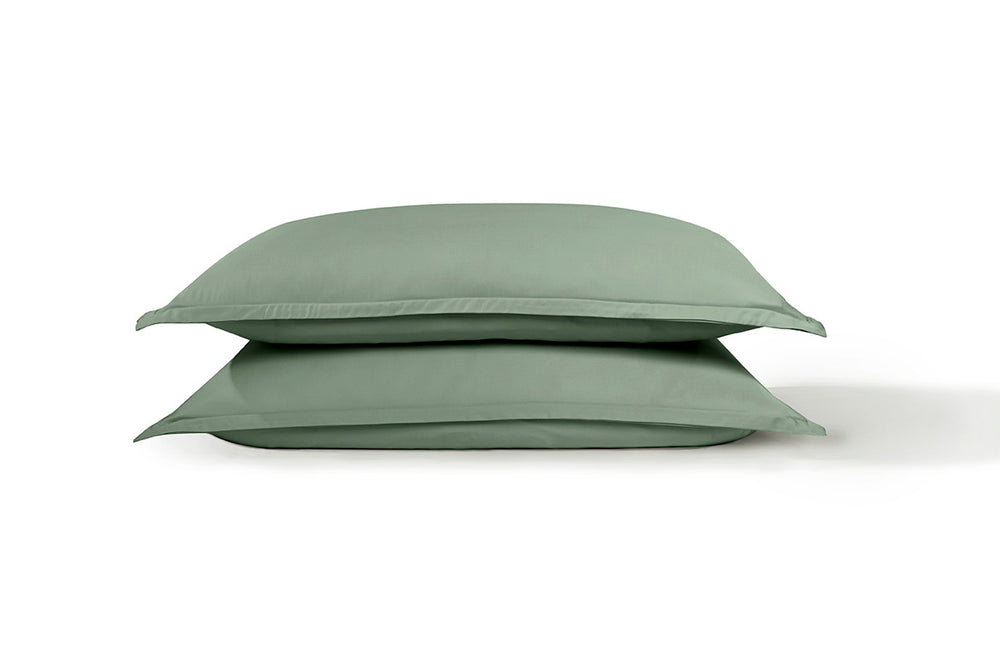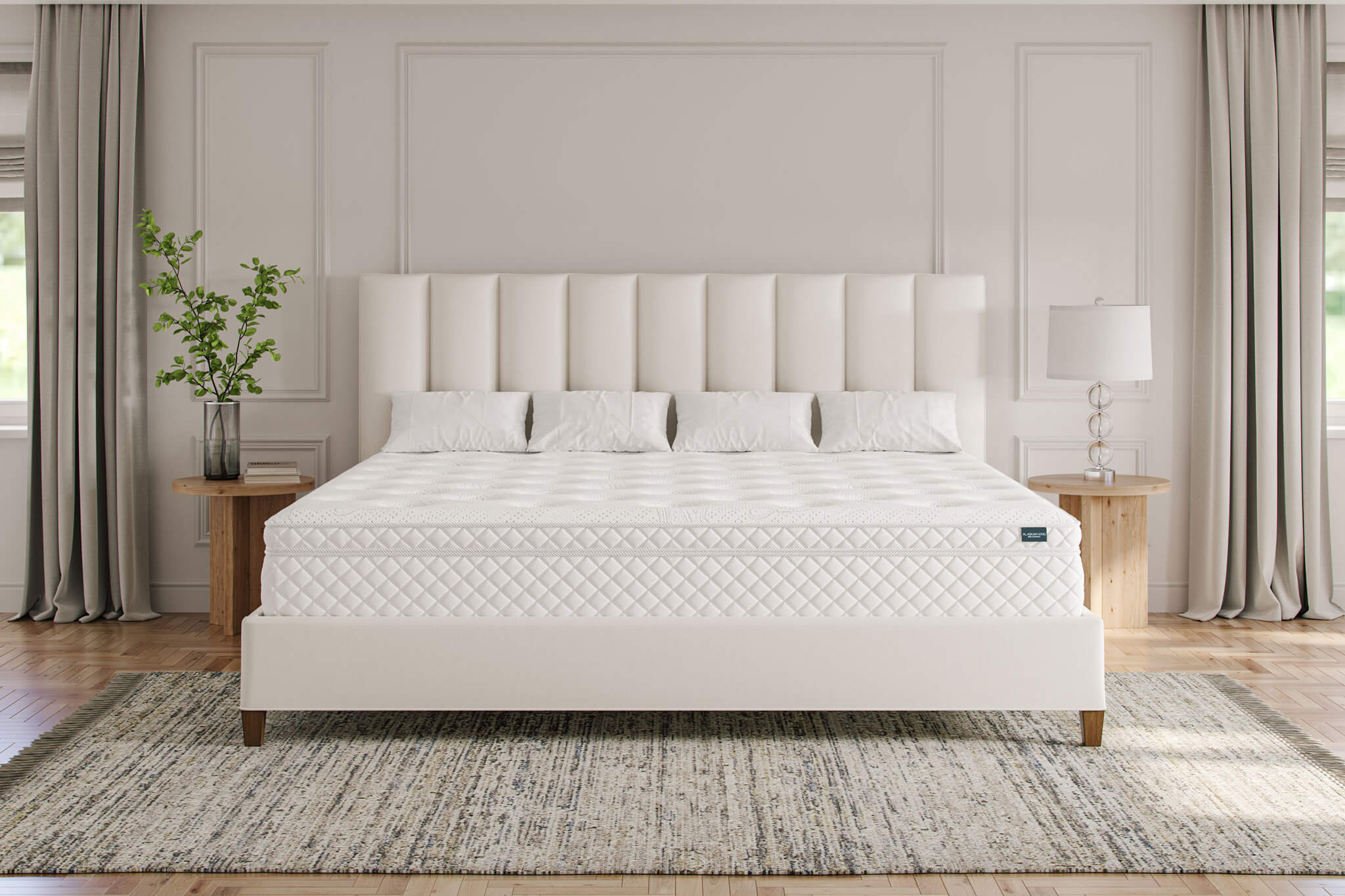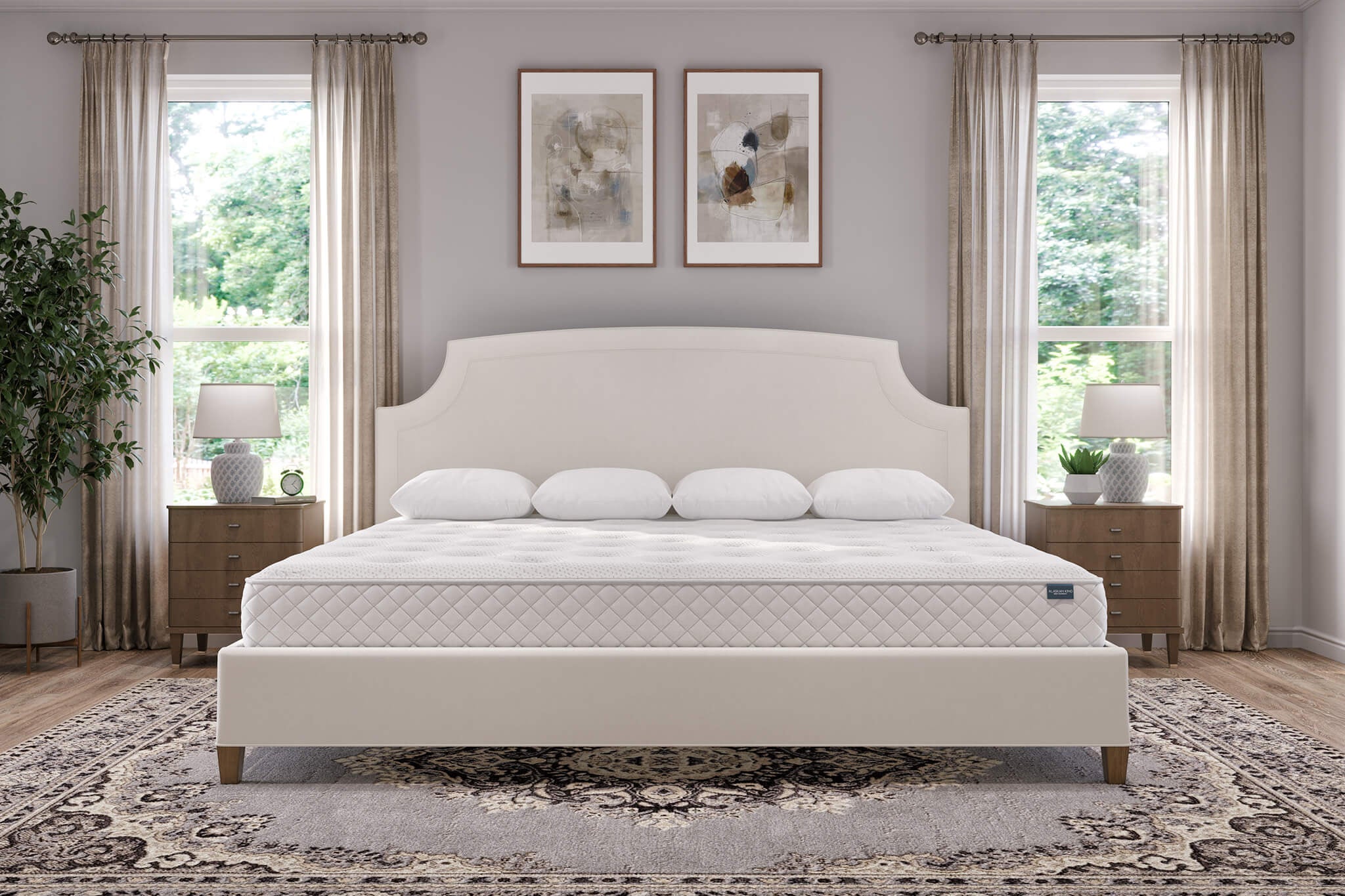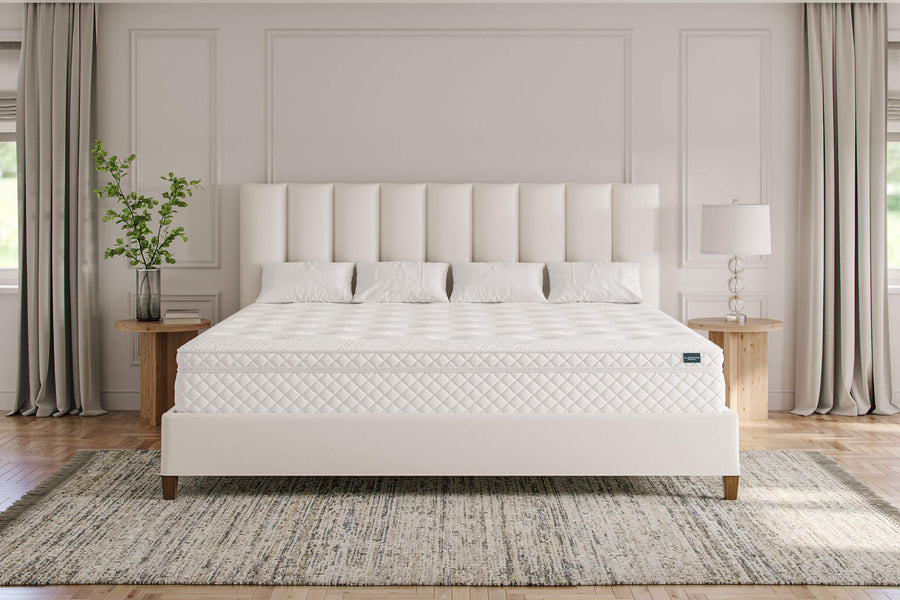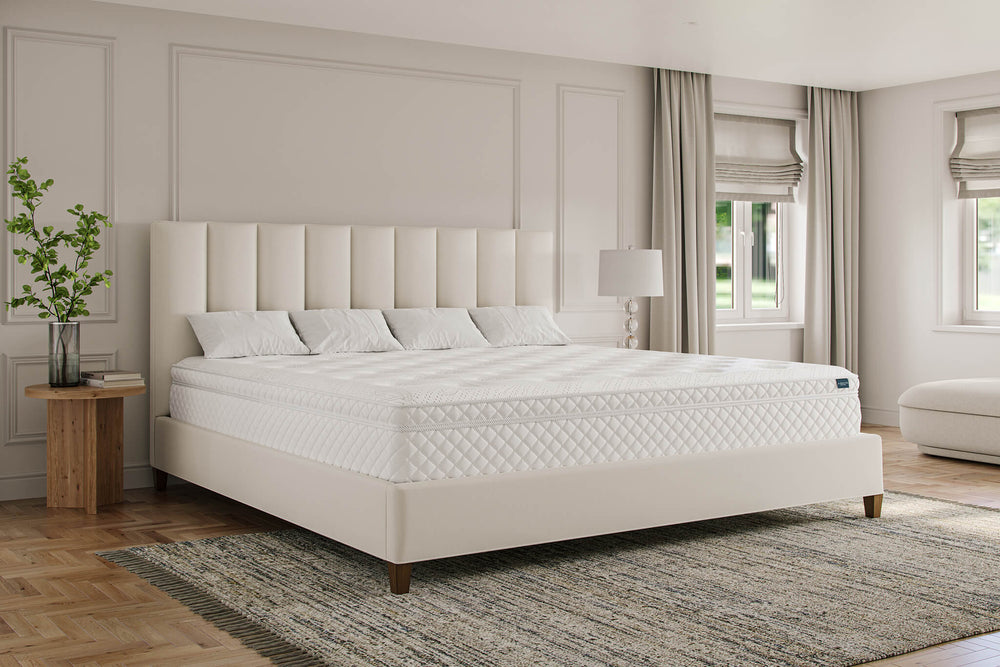Back-To-School Sleep: How Alaskan King Beds Can Help Students Excel
As parents, we all want to set our kids up for success, especially as they return to school. We buy them the best school supplies, encourage good study habits, and ensure their schedules are organized. However, there is one underestimated factor that many parents tend to underestimate – sleep.
The truth is that sleep is vital for focus, memory, learning, and overall cognitive performance. That’s why a lack of sleep can make it harder for your kid to excel in school.
Unfortunately, many children and teenagers today are sleep-deprived because they stay awake at night texting, gaming, or scrolling through social media. And the harsh truth is that screens are often the nemesis of a good night's sleep.
That’s why we want to highlight the importance of sleep on academic performance and propose some sleep hygiene tips for your kids and teenagers. We also want to discuss how sleeping on an Alaskan King bed can help your whole family sleep better.
So, let’s dive in!

The Importance of Quality Sleep for Kids and Teens
Although sleep is important for everyone, it’s even more vital for kids and teenagers. That’s because the formative years of childhood and adolescence are marked by rapid physical growth, emotional maturation, and cognitive development. And all of these processes rely on getting quality sleep.
Sleep is vital for:
- Physical growth and development
- Cognitive development
- Learning and concentration
- Overall well-being
- Emotional management
- Academic performance
So, why is sleep so essential for kids and teenagers?
Well, first of all, sleep is vital for growth because the body releases growth hormones during certain stages of sleep. These are crucial for the proper development of bones and muscles, ensuring healthy physical growth.
Sleep also plays a vital role in cognitive development, as proper rest supports a child’s ability to think logically, reason, and solve complex problems. A well-rested mind is more alert and responsive, making it easier for kids to engage in classroom activities and absorb information.
The brain processes and consolidates information acquired during the day while we sleep, improving memory retention and learning. That’s why kids who consistently get quality sleep are better equipped to absorb new knowledge, which enhances their academic performance. In contrast, sleep-deprived children often struggle with attention issues, which may lead to difficulties in learning and retaining information.
Sleep is also essential for emotional regulation because we all know how emotions can run high among children and teenagers. Getting enough rest every night helps our young ones manage stress, anxiety, and frustration more easily, ensuring a more balanced emotional state. On the other hand, lack of sleep can intensify mood swings and instability, adding to behavioral problems and outbursts.
Lastly, sleep affects your children’s overall health. Chronic sleep deprivation is linked to an increased risk of several conditions like type 2 diabetes and obesity.
How Much Sleep Do Kids and Teenagers Need?
Since sleep is so important for proper development and growth, it’s natural that babies, children, and teenagers need more sleep than adults.
Here are some general sleep duration recommendations based on age, according to WebMD:
- Newborns: 15-18 hours
- Babies: 14-15 hours
- Toddlers: 12-14 hours
- Younger kids (3-6 years of age): 10-12 hours
- School children: 10-11 hours
- Teenagers: 8-10 hours
It’s important to mention that these sleep guidelines provide a general framework, but individual sleep needs can vary. You need to monitor your child's mood, behavior, and overall well-being to ensure they get the right amount of sleep for their age.
Here are some signs that your child is not getting enough sleep:
- Moodiness and irritability
- Frequent temper tantrums
- Not wanting to leave bed in the morning
- Morning grogginess
- Frequent daytime naps
- Hyperactive behavior
- Inability to regulate emotions properly
Teenagers are the worst when it comes to getting the recommended amount of sleep, as surveys show that 7 out of 10 teens don’t get enough sleep on a school night. That’s because they often text, scroll through social media, play games, or watch TikToks late into the night. As a result, these activities reduce sleep duration and disrupt sleep quality, preventing teenagers from getting the recommended 8-10 hours of rest.
Does Sleep Deprivation Affect Academic Performance?
Mounting evidence and expert opinions highlight the link between sleep deprivation and academic performance in children and teenagers. Studies have consistently shown that students who don’t get enough sleep tend to struggle academically. That’s because sleep-deprived students often experience difficulties with concentration, memory, problem-solving, and creativity, all of which are essential for effective learning.
Students who get enough sleep right before an exam generally have higher chances of getting better grades and having a higher semester GPA.
So, if you want your kids to excel in the new school year, you can start by helping them get the sleep they need.
Hygiene Tips for Kids and Teens
It’s not always easy for your kids to get the sleep they need. However, you can help them by setting a good example with healthy sleep habits and discussing the importance of sleep with them.
Here are some tips on improving the quality of their sleep:
- Set a regular sleeping schedule
- Create a relaxing bedtime routine
- Limit screen time in the evening
- Ensure a comfortable sleeping environment
- Keep your kids stimulated throughout the day
- Encourage regular physical activity
- Allow them to unwind in the evening
- Limit their sugar intake
- Teach your children how to manage stress
How the Alaskan King Bed Can Help
Alaskan King is much bigger than a King mattress, which is why it’s the perfect oversize mattress for families looking to co-sleep safely and comfortably. That’s important because co-sleeping can boost sleep quality in children and ensure they get the rest they need to excel at school.
Co-sleeping on a family-size bed promotes a sense of security and closeness in children. This helps them relax and unwind, ensuring they transition smoothly to sleep.
In addition, sharing an oversize King mattress can help establish a consistent bedtime routine. Families can engage in calming activities like reading or storytelling, creating a soothing pre-sleep atmosphere. It also encourages children to develop healthy sleep habits from an early age.
While co-sleeping has many benefits for parents and children, it’s important to ensure that everybody has enough room to get comfortable. That’s why the Alaskan King mattress is a great option, as it provides additional space, creating the perfect family King bed.
The classic Alaskan King mattress is 108” x 108”, but we have six additional sizes. If you’re looking for the biggest King-size mattress, our Alaskan King Biggie is the perfect choice, with the incredible 144” x 108” sleep surface.
Co-Sleeping Better on an Alaskan King Mattress
Quality sleep is vital for the physical growth, mental development, emotional regulation, and overall well-being of children and teenagers. It’s also essential for focus, memory, learning, and cognitive performance, all of which are important factors that determine your kid’s academic success.
If you want to help your young ones get the sleep they need, you can prioritize sleep hygiene and support developing healthy sleep habits. Keep in mind that kids need more sleep than adults. Young and school children need 10-12 hours, while teenagers need 10-12 hours of quality rest every night.
You can also try co-sleeping on an Alaskan King mattress. Sharing a giant bed with your kids can improve their sleep quality and help them achieve academic excellence. You just need to make sure your bed is big enough for everybody. And with a giant bed like the Alaskan King, you don’t need to worry about that – there is enough room for the whole family.
Take a look at our Alaskan King mattress selection and start your co-sleeping journey.


